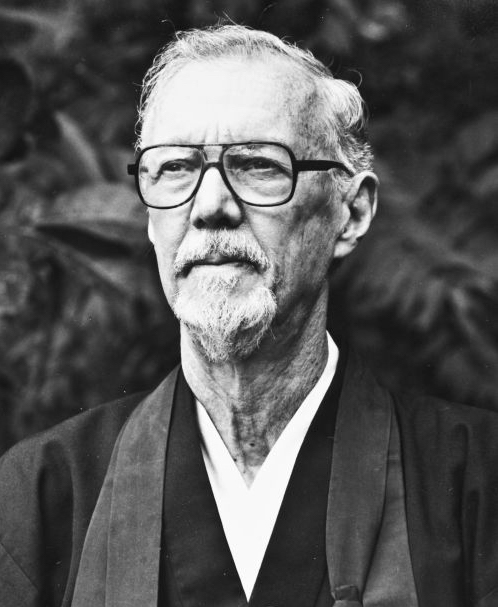As well as being for many years the Zen master of the Diamond Sangha, Aitken Roshi was also a mentor to hundreds, maybe thousands, of dharma practitioners who were not formally his students. In this, I believe he was unique, as most other Buddhist teachers tend to keep their energies focused on their own community. But Aitken Roshi filled a role—in fact, he more or less created it—as a friend in the dharma to all who sought him out. To countless students of the Buddha Way, Bob Aitken was our kalyana mitra, our spiritual friend, our elder.
Quietly and without fanfare, Aitken Roshi accomplished so much in his long and fruitful life, and there’s so much about it that can be instructive for anyone studying Buddha’s teaching. He stepped up to shoulder the responsibilities of helping others in their practice; he stepped down to support and be supported by those whose lives touched his own; he stepped out to share together in our struggles; and he stepped forth to meet us where we stood; and he stood with us—all of us, every sentient one of us—as we together spoke, as best we could, truth to power. This last thing—in the life-long constancy he brought to its urgent impossibility, he seemed to approach standing up to the crushing effects of blind power as something of an addendum to the Four Great Vows of the Bodhisattva.
Tricycle’s web editor, Philip Ryan, got it right, I think, when he described Aitken Roshi, simply, as “one of the great ones.”
Thank you for subscribing to Tricycle! As a nonprofit, we depend on readers like you to keep Buddhist teachings and practices widely available.
